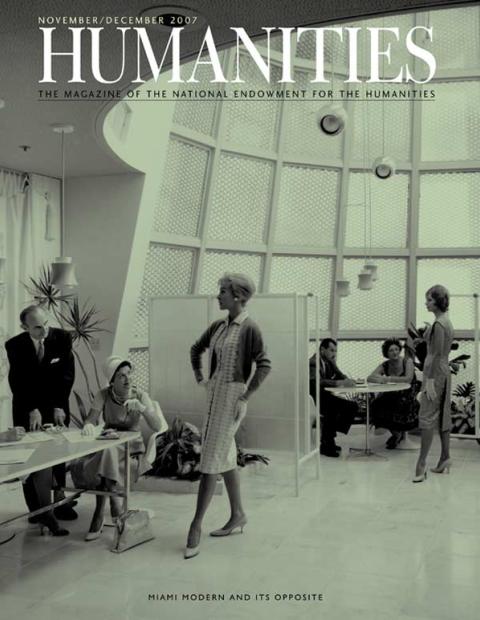A magazine should suggest to the reader the existence of a world outside one's door that is larger and more interesting than he or she would have imagined had they not read the magazine. A journalist I know put it this way, “I am grateful any time a magazine article tells me something I didn't know.”
Providing something new to the reader can be difficult, especially when current fashion dictates a feeling of certainty, possibly unearned, about questions that would be better treated as open. When everyone knows X, it can be hard to persuade people to be interested in a piece of writing that suggests the opposite of X or even X with qualifications.
For instance, everyone knows Miami, with its hot, hot, hot Art Deco style, is the capital of swank. Well, yes, that is true, in its way. But consider the following possibililty: that a hot humid climate like Miam's might give rise to a style and architecture that is more minimalist, more harmonic with its harsh natural environment, and altogether not the kind of thing that could exist only in an air-conditioned world. That this scenario happens to be true is why this issue contains a lovely essay on Miami swank and its opposite by architectual writer Thomas Hine.
And to suggest the amazing volume of interesting stuff that is going on outside your door, this issue introduces a new department. Called Curio, it will be like a shelf where we the editorial staff put little odds and ends that catch our attention as we take in many books, articles, Web sites, exhibits, films, and so on that make up the mounds of scholarship and public-projects funded directly or indirectly by the Endowment. I think of it as a gift shop for what might be called the World Museum of the Humanities.
The journalist I quoted earlier was Andrew Ferguson. In a conversation with NEH Chairman Bruce Cole, he mentions the feeling of discovery that I have in mind—the one that draws a writer or an editor into a story and becomes the most precious thing a magazine article (or in Ferguson's case a book) can deliver to its readers. The feeling came to Ferguson as he reported on a controversy over a proposed Lincoln statue in downtown Richmond. Americans were not tormented by history, Ferguson had always thought. Yet here were some people who seemed to spend a lot of time thinking about Abraham Lincoln and were quite upset. X meet not X.
P.S This is only my second issue as the editor of Humanities magazine. There is much I still have to learn, especially about the magazine's readers. So, I welcome your comments, including but not limited to complaints, compliments, self-promotion, and suggestions. My e-mail address is @email.

